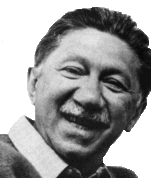
Abraham Maslow (1908-1970), a founding father of humanistic psychology, has more to do with outsourcing than you might think. He is famous for his breakthrough work on the “hierarchy of needs,” featured in his book: Toward a Psychology of Being.
His premise was simple, yet profound: human beings are motivated by unsatisfied needs, and certain lower needs must be satisfied before higher needs can be addressed. He laid this out in his hierarchy of needs pyramid, which starts with physiological needs at the base, then up to safety needs, social needs and esteem needs. Fulfilling those needs leads to self-actualization; they have to be fulfilled before a person is able to act unselfishly.
The application of this progression for businesses, workplaces and in a collaborative outsourcing environment is clear. First, let’s consider the concept of Desired Outcomes. Most business – like people – have desires. A desire is something a business wants, but does not have. An outcome is a business result.
Desired Outcomes are at the top of a company’s needs pyramid when it comes to the decision to outsource. They want real results, whether it’s cost savings, service improvements, market share, or innovations such as business product or process improvements. Call Desired Outcomes the self-actualization stage for a business.
But in order to get to the top of the pyramid, companies—like people—need to take care of the basics. This is where pricing comes in. Pricing is at the base of the pyramid when it comes to service providers and suppliers.
Not enough profit? It’s pretty much for sure the client won’t be getting a green scorecard—let alone attain their coveted Desired Outcomes. A supplier can’t possibly help their client solve complex business problems if they are not at least covering their basic costs (unless of course they have deep pockets and a Board of Directors that doesn’t care about making money).
In the middle of the pyramid for businesses that outsource is the need to achieve agreed upon service levels. Our work at the University of Tennessee has shown that in order to move to a Vested Outsourcing agreement, most companies need to feel comfortable that their service provider can block and tackle on the basics of getting the job done.
Maslow also said, “What is necessary to change a person is to change his awareness of himself.” That’s true for businesses also, for what is necessary to change a business is to change its awareness of itself.
I believe The Vested Outsourcing Manual is an engine for that change. Its hierarchy of steps provides a platform that guides companies and service providers to collaborative and trusting partnerships that understand and fulfill the joint needs of the enterprise.
Vested Outsourcing makes sense both from a humanistic and business perspective. That’s because, as Maslow said, “If you only have a hammer, you tend to see every problem as a nail.” It’s not possible to share value with that mindset. The Vested model puts that hammer aside in favor of a much gentler, innovative and comprehensive toolkit.